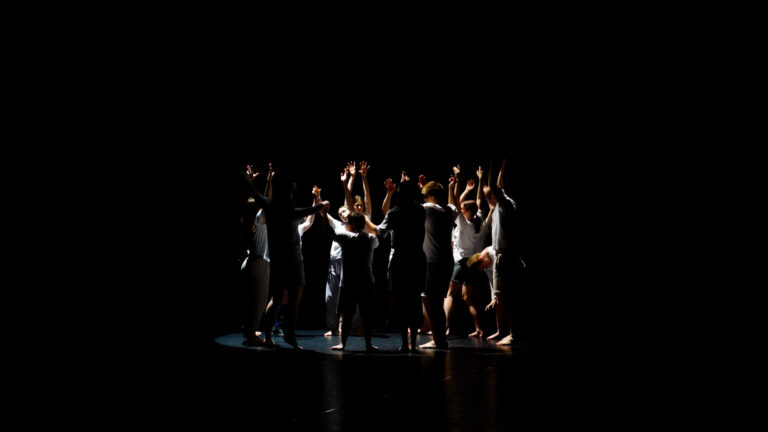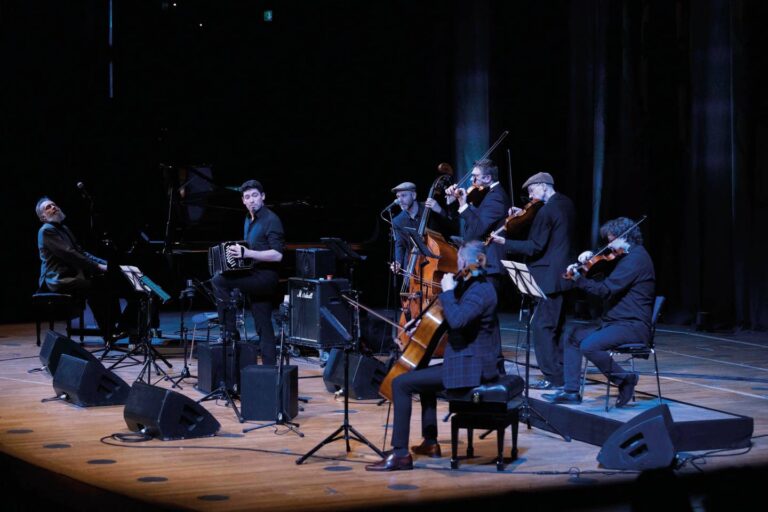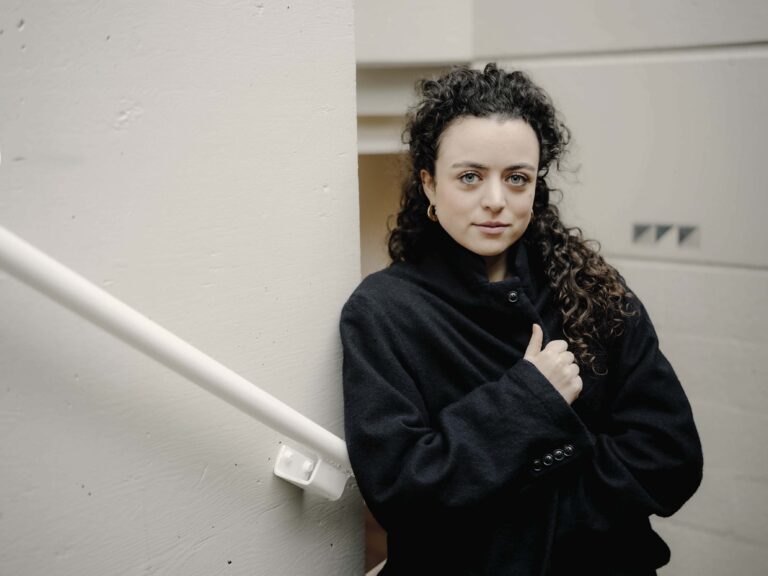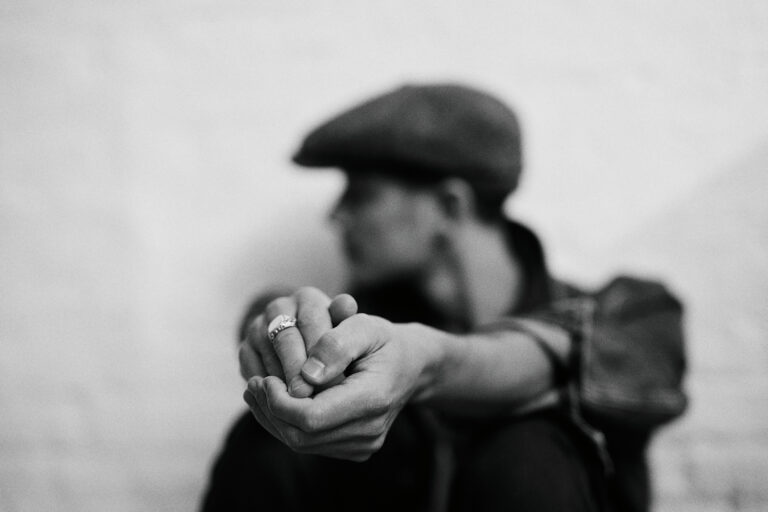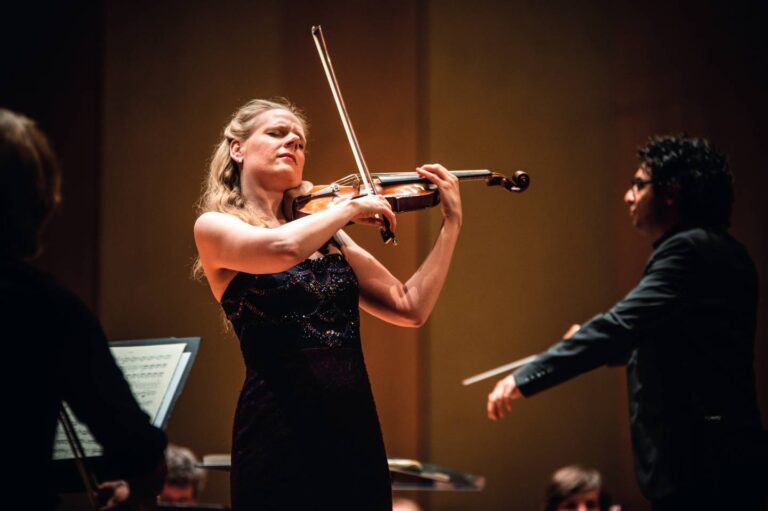Orchestre des Champs- Elysees
Het Europese volkslied
Beethovens 9e Symfonie
Beethoven: Symfonie nr. 8 in F op. 93
Beethoven: Symfonie nr. 9 in d, op. 125
dirigent: Philippe Herreweghe · sopraan: Christina Landshamer · mezzosopraan: Stefanie Iranyi · tenor: Maximilian Schmitt · bas: Thomas Bauer
Hét Europese volkslied
Beethovens ‘Symfonie nr. 9’ is een van de mijlpalen uit de klassieke muziek. Vooral het laatste deel was in de negentiende eeuw revolutionair. Beethoven voelde zich aangesproken door de gedachte van vrijheid, gelijkheid en broederschap en liep al dertig jaar rond met het idee om een gedicht van Friedrich Schiller op muziek te zetten. Dit ‘Alle Menschen werden Brüder’ bleek het perfecte, vreugdevolle slotakkoord van zijn stormachtige symfonie, die hij volledig doof voltooide. Sinds 1972 is een instrumentale versie van dit deel het volkslied van Europa.
Beethovens magnum opus heeft op meer manieren de standaard bepaald. Toen Philips en Sony in 1980 de grootte van hun nieuwe geluidsdrager, de compact disc, moesten bepalen, vond men dat die in elk geval de 74 minuten durende uitvoering uit 1951 door het orkest van de Bayreuther Festspiele onder Wilhelm Furtwängler moest kunnen bevatten. Legendarisch is ook de uitvoering die Bernstein eind 1989 dirigeerde om te vieren dat de Berlijnse Muur gevallen was; koor en orkest kwamen uit Duitsland, de Sovjet-Unie, Groot-Brittannië en de Verenigde Staten, en voor de gelegenheid werd het woord Freude vervangen door Freiheit.
Het verbroederende werk wordt uitgevoerd door Collegium Vocale Gent – vanwege de uitgesproken Europese uitstraling, aanwezigheid én samenstelling in 2011 benoemd tot Europees Ambassadeur – en Orchestre des Champs Elysées, onder leiding van oprichter en dirigent Philippe Herreweghe. Voorafgaand hoort u de veel minder bekende ‘Symfonie nr. 8’, een voor Beethovens doen ongekend vrolijk en licht werk.
Bekijk hier alvast het programmaboekje.
The European anthem
Beethoven’s ‘Symphony nr. 9’ is one of the milestones in classical music. Especially the last part was revolutionary in the nineteenth century. The thought of freedom, equality and fraternity appealed to Beethoven and the idea of setting Friedrich Schiller’s poem to music had been preying on his mind for thirty years. This ‘Alle Menschen werden Brüder’ turned out to be the perfect, joyous final chord to his stormy symphony, which he completed when he was entirely deaf. Since 1972 an instrumental version of this part has been the anthem of Europe.
Beethoven’s magnum opus has set the standard in more than one way. In 1980 when Philips and Sony had to determine the maximum amount of music their new compact disc should be able to carry, people thought it should at least be able to contain the 1951 74-minute performance by the Orchestra of the Bayreuther Festspiele led by Wilhelm Furtwängler. The performance Bernstein conducted late 1989 to celebrate the fall of the Berlin Wall was legendary too; choir and orchestra were from Germany, the Soviet Union, Great Britain and the United States, and the word ‘Freude’ was replaced by ‘Freiheit’ for the occasion.
This fraternising work is played by the Collegium Vocale Gent – which was appointed European Ambassador in 2011 because of the characteristically European appearance, presence and composition – and the Orchestre des Champs Elysées, led by founder and conductor Philippe Herreweghe. Preceding you will hear the much less commonly-known ‘Sympony nr. 8’, a work that is unprecedentedly cheerful and light for Beethoven’s doings.
